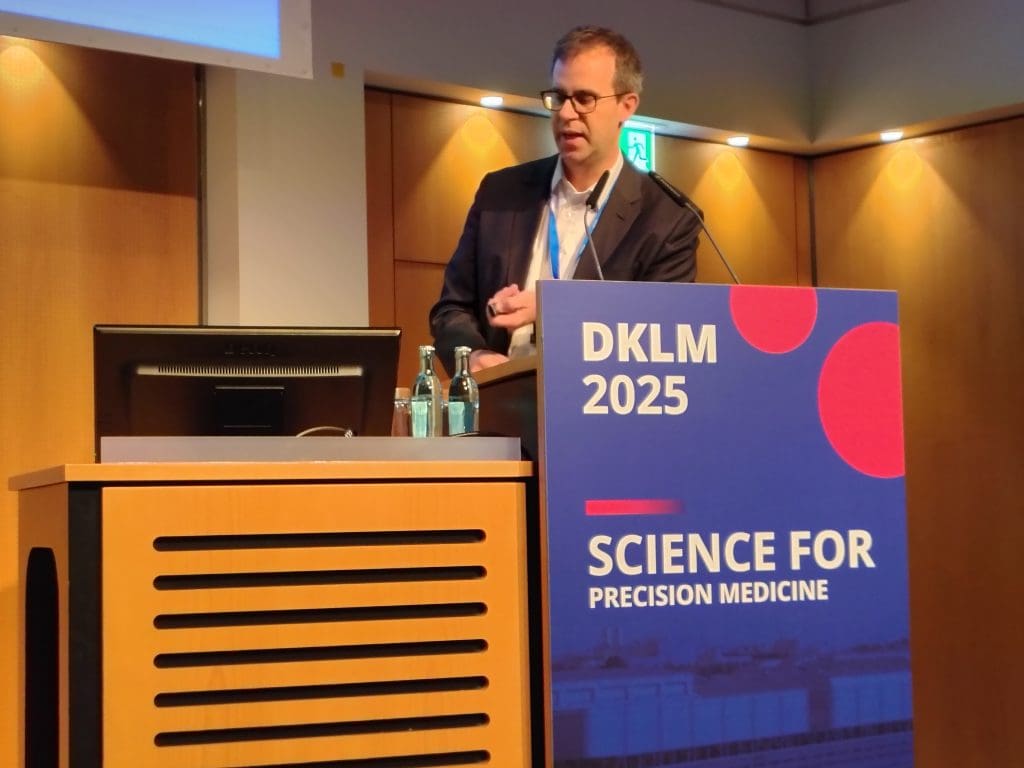DKLM 2025 in Leipzig set standards for precision medicine in laboratory diagnostics
The German Congress for Laboratory Medicine (DKLM) 2025 brought together numerous experts from medicine, research and industry from 23 to 24 October at the Congress Center Leipzig (CCL) under the motto “Science for precision medicine”. The event, which was preceded by the ceremonial presentation of the MedLab Awards on October 22, highlighted the central role of laboratory medicine in the further development of individualized diagnostics and therapies. Organized by the German Society for Clinical Chemistry and Laboratory Medicine (DGKL) and the DVTA, the congress offered a forum for interdisciplinary exchange and presented innovative approaches in precision medicine.
More than 1,200 participants ã including doctors, scientists, laboratory specialists and representatives of international organizations ã discussed current challenges and advances in laboratory diagnostics in over 50 sessions. The focus was on translational research, which translates scientific findings into clinical practice. Particular emphasis was placed on topics such as the integration of omic data into routine diagnostics, the use of artificial intelligence (AI) to interpret multidimensional data, and genetic and epigenetic modifications as the basis for personalized medicine. Experts also discussed the application of new methods in rare diseases and adaptation to regulatory requirements such as the In Vitro Diagnostic Medical Device Regulation (IVDR).

Among the programmatic highlights were symposia on digital analytics in diagnostics and on the derivation of pathophysiological organ interactions from complex data sets. Practical workshops, including microscopy courses on morphological criteria in hematology and oncology, provided participants with hands-on experience. The kick-off event on 22 October was dedicated to the MedLabAwards 2025, which honoured outstanding achievements in laboratory medicine, including contributions to early detection and prevention.
Prominent speakers such as Prof. Dr. med. Berend Isermann, Prof. Dr. rer. nat. Uta Ceglarek and Christiane Maschek, as conference presidents, shaped the discussions with contributions on the integration of molecular oncology into non-oncological fields and the use of post-translational protein modifications. The event underlined the systemic relevance of laboratory medicine for the healthcare sector, especially in areas such as early detection, prevention and aftercare.
In addition to the scientific programme, the accompanying industrial exhibition played a central role. Over 100 exhibitors, including companies such as RfB, INSTAND, NOUL, Tecan, Chromsystems and R-Biopharm, presented the latest technologies in diagnostics, from AI-powered microscopy systems to advanced analytical platforms. Particular focus was placed on analytical chemistry as a key technology that drives innovation in laboratory medicine. Industry representatives emphasized the need for scalable solutions for accurate and efficient diagnostics.
In retrospect, it can be said that DKLM 2025 not only brought together current trends, but also provided impetus for future developments. The congress management emphasized the high level of participation and the fruitful dialogue, which could lead to new collaborations between research, clinics and industry. In times of growing demands on health care, the congress underlines the indispensable role of laboratory medicine in tackling global challenges such as pandemics and chronic diseases. The next DKLM is planned for 2026 and is scheduled to take place in Hamburg.
The German Society for Clinical Chemistry and Laboratory Medicine (DGKL) has also taken a historic step after the conclusion of the annual meeting at the German Congress for Laboratory Medicine (DKLM) in Leipzig: Prof. Dr. med. Mariam Klouche was elected as the first president of the society. Prof. Dr. med. Thomas Streichert from the University Hospital of Cologne was elected Vice President. The elections thus mark a turning point for the DGKL, which has played a leading role in laboratory medicine in Germany since its foundation.
Read Also:
Editor: X-Press Journalistenbû¥ro GbR
Gender Notice. The personal designations used in this text always refer equally to female, male and diverse persons. Double/triple naming and gendered designations are used for better readability. ected.




